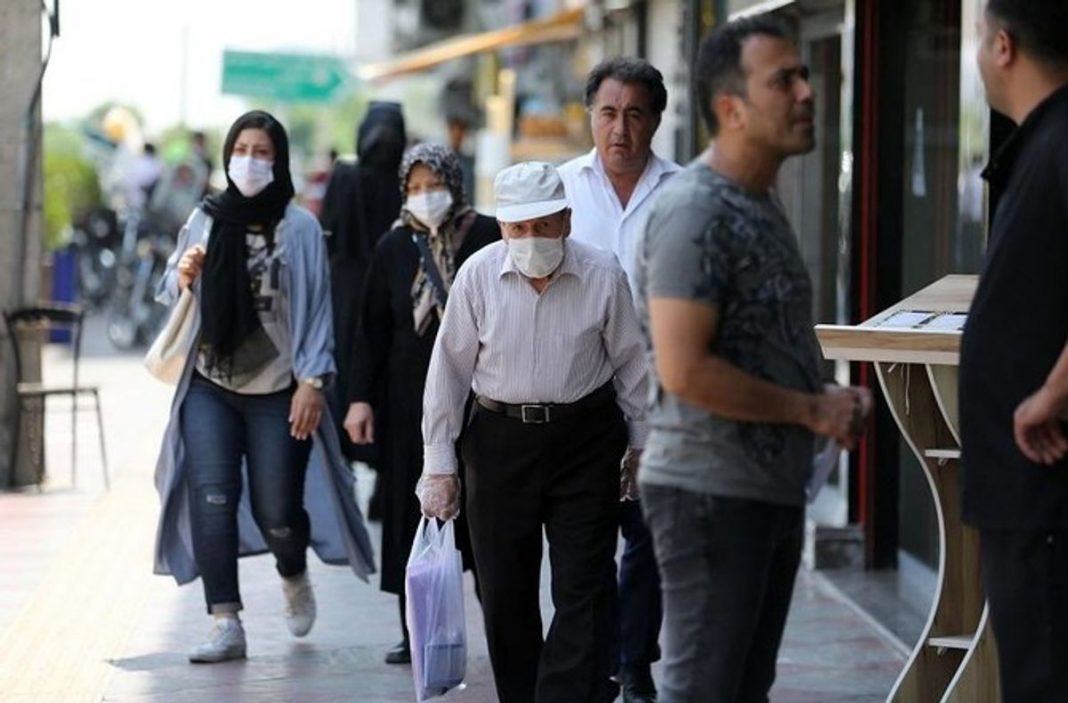Iran confirmed Tuesday over 2,700 new coronavirus infections, its highest single-day count in more than a month, as the health ministry called for those without masks to be fined.
https://twitter.com/theradardude/status/1290634620493606913
Deaths and infections from the novel coronavirus have been on a rising trajectory in Iran since hitting a months-long low in May.
Iran battling against coronavirus as infections surge
This has prompted Iran to make wearing masks mandatory in enclosed spaces and reimpose restrictions lifted gradually since April to reopen the economy.
Despite the rule, people without masks can still be seen inside the capitals’ shops and banks, and state television often criticises them for doing so.
“In the past 24 hours, new confirmed cases were reported to be 2,751,” health ministry spokeswoman Sima Sadat Lari said in televised remarks.
The number is the highest since June 5, when the ministry reported 2,886 infections in one day.
The latest count takes the total cases identified in Iran since late February to 314,786, Lari added.
#Iran’s Health Ministry reported 2,751 new confirmed #coronavirus cases on Tuesday, bringing the total number of cases to more than 314,000https://t.co/xm9vxoPj6H pic.twitter.com/RdGYCdaX6G
— Tasnim News Agency (@Tasnimnews_EN) August 4, 2020
Another 212 people died from the virus during the past 24 hours, bringing the overall toll to 17,617.
Iran’s deputy health minister called for those who fail to obey the mask rules to be fined, as the only penalty currently in place is the refusal of service in public places.
“Deterrent methods must naturally be used, one of which is fining those not wearing masks,” ISNA news agency quoted Iraj Harirchi as saying.
But those “financially unable to buy masks must be exempted,” he added, without elaborating how that could be determined.
Iran has suffered a sharp economic downturn since US President Donald Trump withdrew from a landmark nuclear agreement in 2018 and reimposed crippling sanctions.
The COVID-19 pandemic has exacerbated the situation.
Read more: Iran refuses to shut down economy despite accelerating pandemic
It has seen a drop in non-oil exports compounded by a tumbling currency and runaway inflation, piling new pressure on those already dependent on government cash handouts.
Masks in Iran cost from about 15 US cents for simple surgical ones to 68 cents for multilayered ones with respirators, while the minimum wage is currently $2.60 per day.
Rouhani claims 25 million Iranians infected
It was earlier compounded by Rouhani’s suggestion his government was now hoping to overcome the Middle East’s worst outbreak via herd immunity.
Read more: Iran registers highest count of Coronavirus cases in a day
“Our estimate is that up to now 25 million Iranians have been infected with this virus,” Rouhani told a virus taskforce meeting earlier.
Citing the results of a health ministry study, he warned that “30 to 35 million more may face infection” in the future and added that Iran had “not yet achieved herd immunity”.
The number is far higher than the 15 million cases recorded worldwide and significantly more than some hard-hit countries such as the United States and Brazil.
It was also nearly 100 times worse than Iran’s official infection figure of over 270,000 cases issued at the time by the health ministry.
Iran’s toll has continued to climb since, with the virus having officially claimed 221 lives between Wednesday and Thursday, while infections climbed by 2,621.
Since he announced massively elevated estimates, Rouhani has not mentioned them again, let alone elaborated.
Read more: Iran appeals IMF for emergency loan request to combat coronavirus
But a slew of officials have since come up with their own explanations, with some saying the 25 million does not refer to full-blown infection cases but to all those who were “exposed” to COVID-19 and may now have a level of immunity.
Rouhani’s earlier claims come to fruition?
He said he thought the announcement was meant to make “the people face reality so that they would be scared into observing health protocols more”.
He added that herd immunity might be an effective way to control the outbreak, even though “it would mean more people would die”.
Read more: Iran in Syria: Sanctions, Economy & Coronavirus making it “Hard” to breathe
An art teacher named Rezayi said she did not believe the numbers were actually so high.
“And even if they are, it’s still hard to accept them given how the president has denied his statements before,” she said.
She was referring to a comment Rouhani made days after the start of Iran’s outbreak in February, when he said “everything will return to normal” within a few days.
Having come under criticism for seemingly trying to normalise the crisis, the government’s spokesman later said that Rouhani meant a return to normal decision-making procedures by state bodies.
AFP with additional input by GVS News Desk














